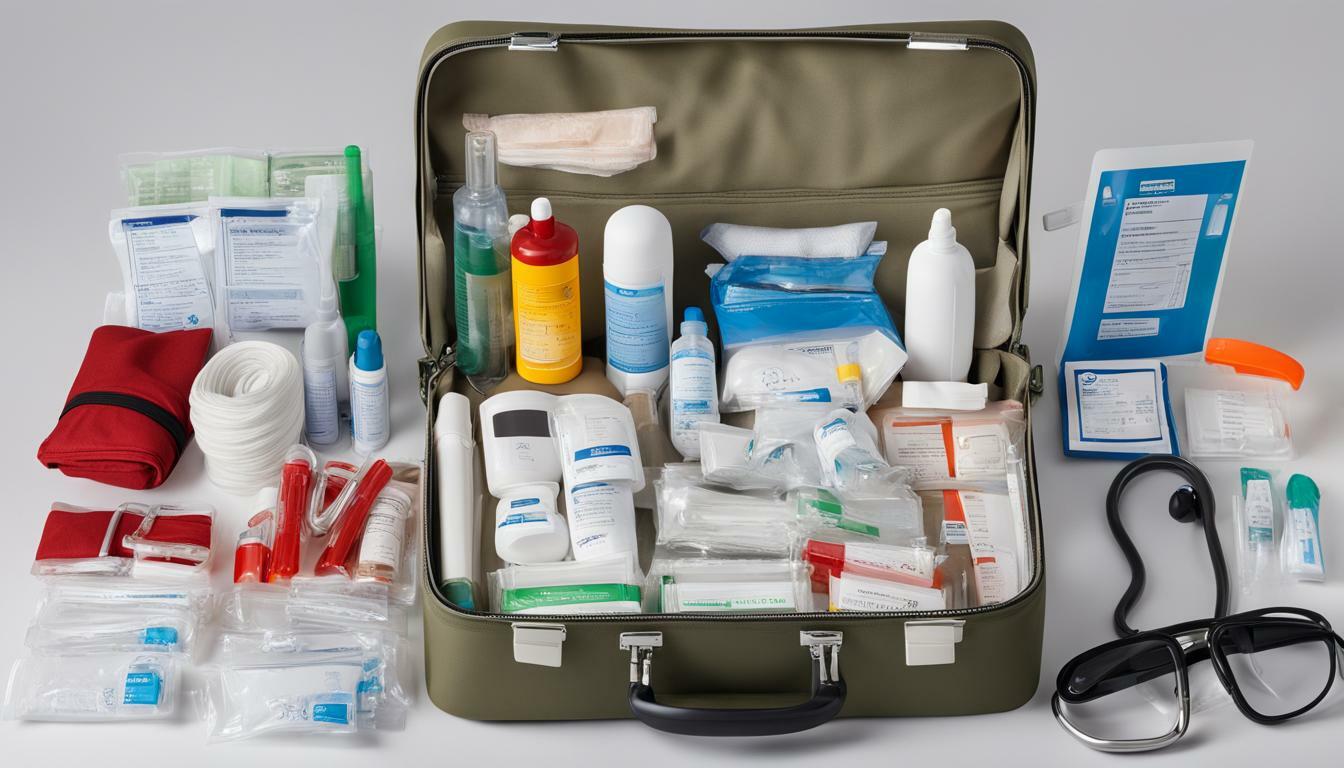As our parents grow older, their health and safety become a top priority. It’s natural to worry about their well-being, but there are steps that we can take to ensure their safety and give us peace of mind. One such step is investing in a first aid kit specifically designed for ageing parents.
A first aid kit is an essential tool for managing medical emergencies and accidents. Having one on hand can be the difference between life and death in serious situations. And when it comes to our ageing parents, it’s critical to ensure that they have access to the supplies they need to manage health issues that become more common as we age.
In this article, we’ll explore the importance of first aid kits for ageing parents and provide guidance on how to assess their specific needs, choose the right kit, and maintain it effectively. Our aim is to offer reliable solutions for UK families, ensuring the safety and peace of mind of their ageing parents.
Key Takeaways:
- Investing in a first aid kit for ageing parents can help ensure their safety and give us peace of mind.
- First aid kits are essential tools for managing medical emergencies and accidents.
- It’s critical to assess the specific needs of our ageing parents when choosing a first aid kit.
- Regular maintenance of the first aid kit is crucial to ensure its effectiveness.
Understanding the Importance of Elderly Care and Emergency Preparedness
Aging parents require special attention when it comes to their health and safety. Elderly care is crucial in providing them with the necessary support and assistance to maintain their quality of life. However, emergency situations can arise, and being prepared is essential for senior safety.
Emergency preparedness involves planning, preparing, and responding to potential emergencies. It aims to minimize the impact of any emergency on people, property, and the environment. Senior safety in emergency situations requires careful planning and a thorough understanding of the risks and potential dangers. It is vital to have first aid supplies readily available to address any medical emergencies that may arise.
The challenges faced by aging parents depend on various factors, such as their health conditions, medication regimens, and lifestyle. Common emergencies that they may experience include falls, heart attacks, strokes, and respiratory distress. First aid supplies can help in managing these emergencies while waiting for professional medical care.
It is important to note that emergency situations can be stressful for both the aging parents and their caregivers. Therefore, proper planning and preparation can help alleviate anxiety and promote better outcomes. Having a comprehensive first aid kit is an essential part of emergency preparedness.
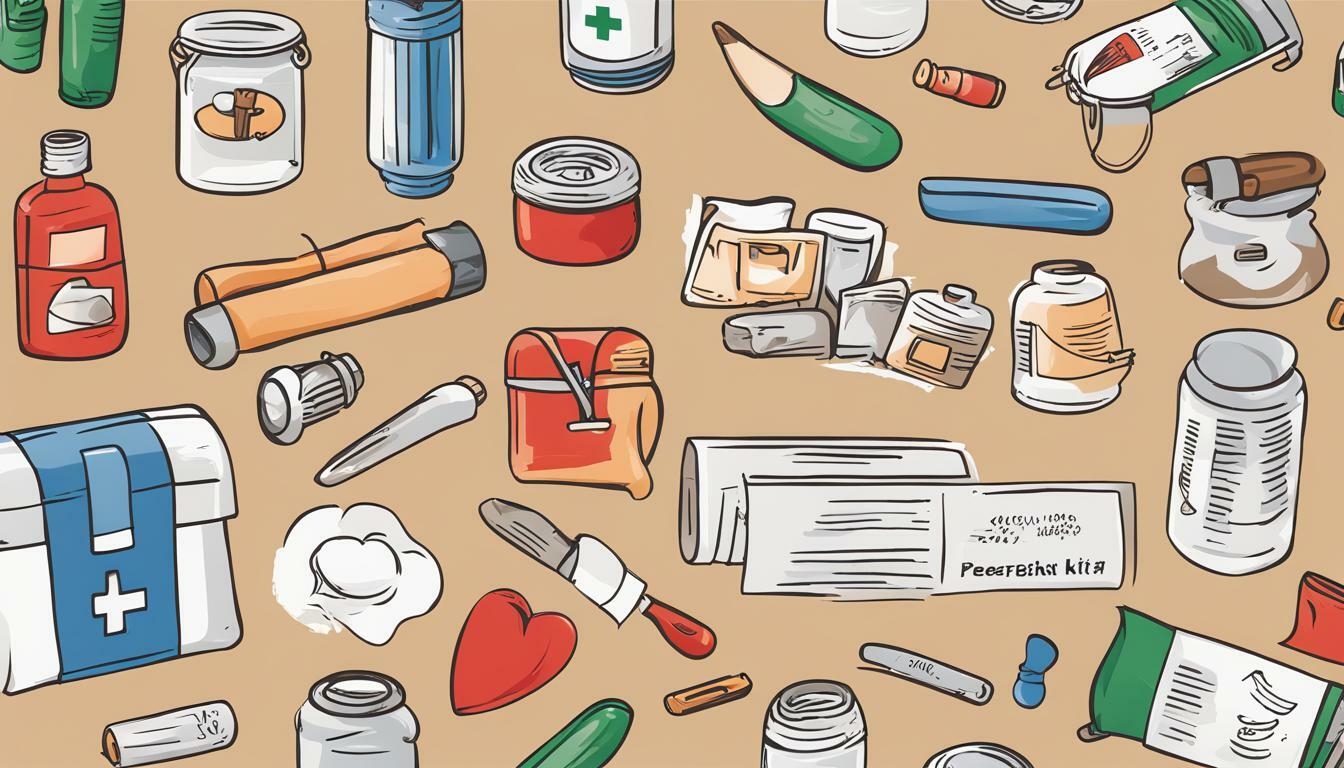
Overall, elderly care and emergency preparedness are critical in ensuring the safety and well-being of aging parents. By being prepared and having the necessary resources readily available, families can provide peace of mind for themselves and their loved ones.
Assessing the Specific Needs of Aging Parents
When it comes to ensuring the health and safety of aging parents, it is essential to assess their specific needs. This involves understanding their physical and mental health, as well as their living environment and daily routines.
One of the primary concerns for aging parents is the risk of medical emergencies. Conditions such as heart attacks, strokes, and falls are more common in older adults, and having a first aid kit on hand can be crucial in these situations. It is also essential to identify any medical conditions or allergies that your parent may have. This information can help you choose the right first aid supplies and medications to include in the kit.
In addition to medical emergencies, it is important to consider other aspects of your parent’s health and safety. For example, if they have mobility issues, you may need to take extra precautions to prevent falls. If they have difficulty remembering to take their medication, you may need to set up a system to help them stay on track.
Overall, assessing the specific needs of your aging parents is an important step in ensuring their well-being. With a clear understanding of their health and safety needs, you can make informed decisions about the contents of their first aid kit and take other measures to promote their overall health and happiness.
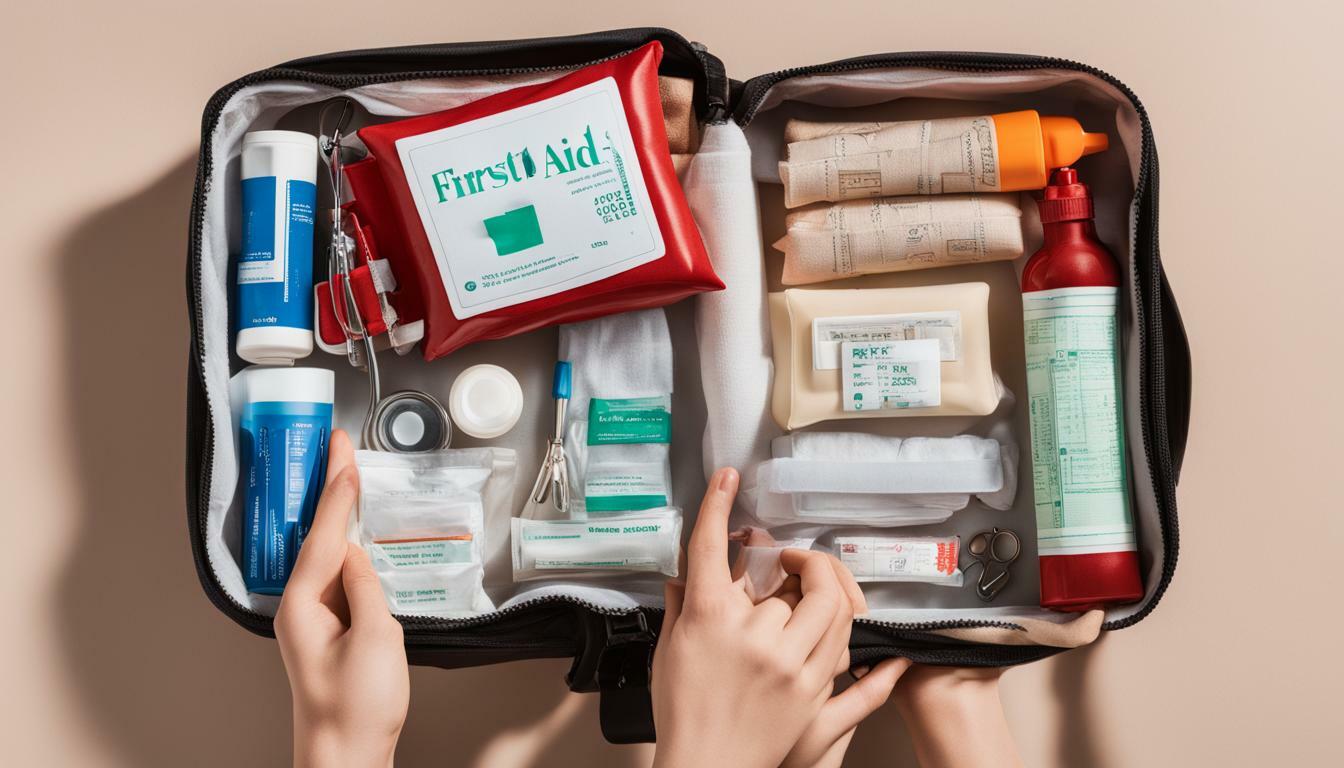
Choosing the Right First Aid Kit for Aging Parents
Choosing the right first aid kit for aging parents can make all the difference in emergency situations. With so many options available, it can be overwhelming to make a decision. Here are some tips to help you choose the right first aid kit for your loved one:
| Consideration | Explanation |
|---|---|
| Personal needs | Take into account any specific medical conditions, allergies, or medications your parent may have. |
| Size and portability | Choose a kit that is easy to transport and store at home or in a car. |
| Contents | Look for a kit that includes essential items such as bandages, gauze, antiseptics, medications, and emergency contact information. Consider adding extra items such as a thermometer, flashlight, or emergency blanket. |
| Brand reputation | Look for well-known and reputable brands that offer quality products and customer support. |
It’s also important to consider the caregiver’s needs when choosing a first aid kit. Look for caregiver resources such as instructional materials or training programs to ensure they have the necessary knowledge and skills to use the kit effectively.
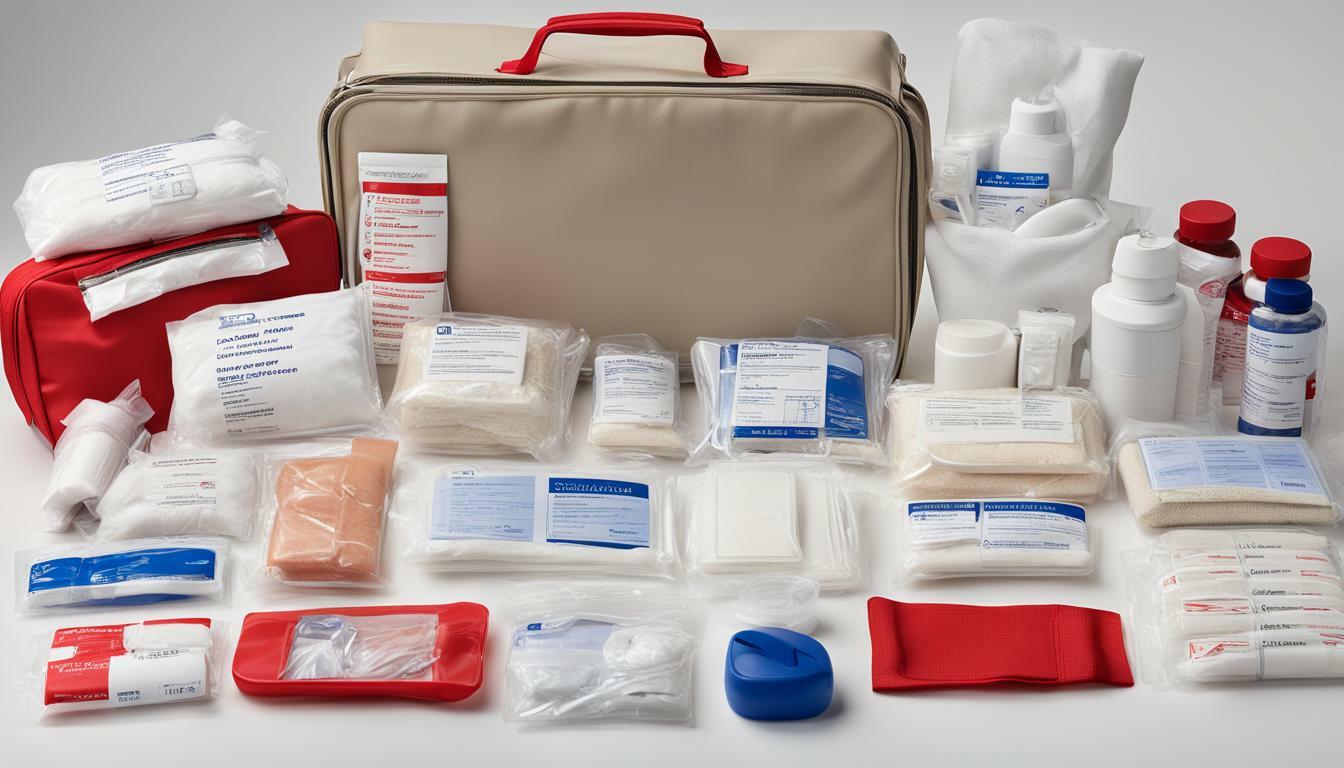
Remember to regularly check and replenish the contents of the first aid kit to ensure it is up-to-date and effective in case of an emergency.
Organizing and Maintaining the First Aid Kit
Now that you have chosen the right first aid kit for your aging parents, it is important to organize and maintain it properly to ensure their safety. Keeping the kit well-stocked and readily accessible can make a huge difference in emergency situations. Here are some tips to help you:
- Store the kit in a cool, dry place, away from direct sunlight and heat sources.
- Keep the contents of the kit up-to-date and replenish them regularly.
- Make sure that the kit is easily accessible and in an easy-to-find location.
- Label the kit clearly and include emergency contact information.
Regularly checking and maintaining the first aid kit is crucial to ensure that it is always ready to use in the event of an emergency. It is recommended to check the contents of the kit once a month and replace any items that are expired or used up.
Additionally, make sure that everyone in the household knows where the first aid kit is located and how to use its contents in an emergency. This can be especially important for caregivers and family members who may not live with the aging parents, but may need to access the kit in an emergency.
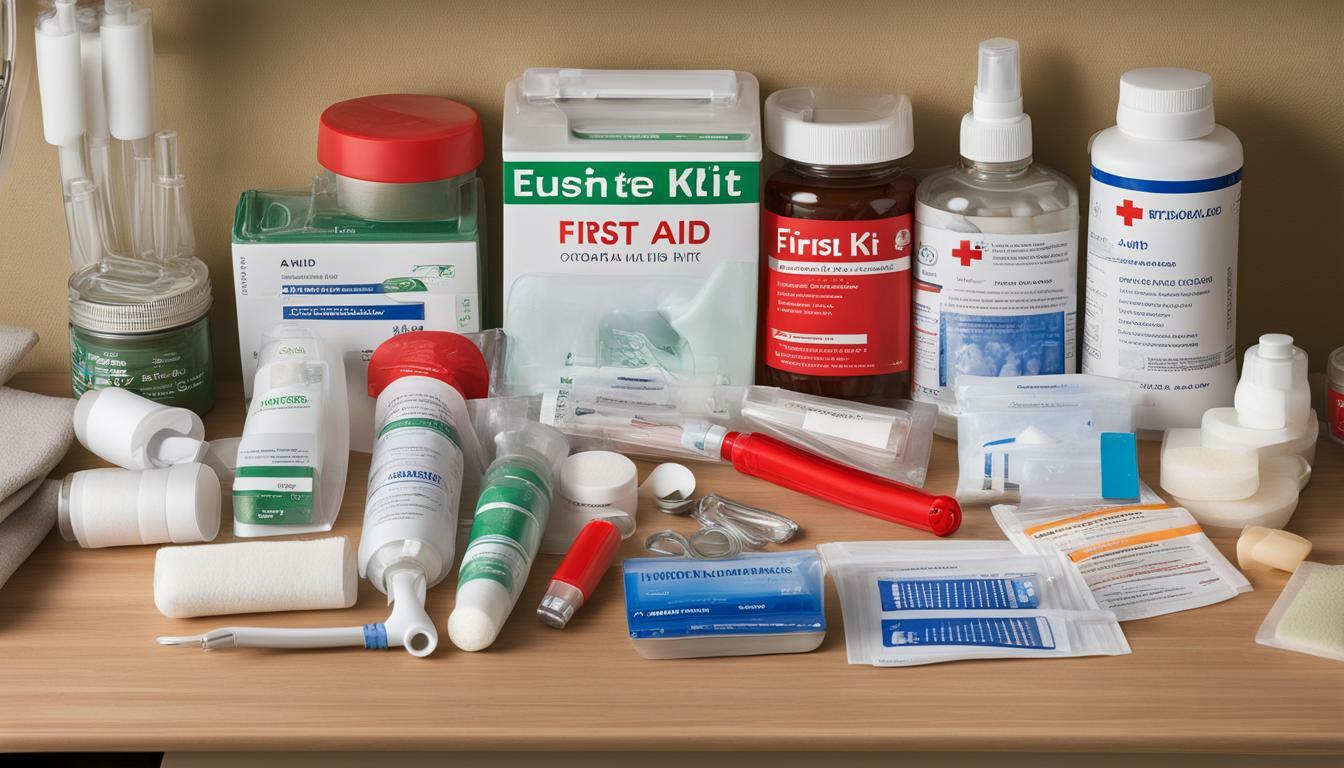
By organizing and maintaining the first aid kit, you can ensure that your aging parents are always prepared for any emergency situation. Prioritizing their safety and well-being through the use of first aid supplies can provide peace of mind for both you and your loved ones.
Educating Aging Parents and Caregivers
When it comes to elderly care, education is key. This is especially true when it comes to first aid kits for aging parents. By educating them and their caregivers about the contents of the kit and basic first aid procedures, you can increase their confidence and effectiveness in emergency situations. Here are some caregiver resources and tips to help you educate your loved ones:
1. First Aid Training
Consider enrolling your aging parents and their caregivers in a first aid training course. This can provide them with the necessary skills to respond effectively in a medical emergency. Look for courses that are specifically tailored to the needs of older adults.
2. First Aid Guides
Provide your aging parents and their caregivers with first aid guides that they can refer to in case of an emergency. Look for guides that are easy to read and understand, and that include clear and concise instructions on how to respond to common medical emergencies.
3. Online Resources
There are many online resources available that can help you and your aging parents and caregivers learn more about first aid and emergency preparedness. The Red Cross and St John Ambulance, for example, provide free online resources and training modules that cover a range of first aid topics.
4. Regular Training and Awareness
It’s important to regularly review and practice first aid procedures with your aging parents and their caregivers. This can help ensure that they are prepared and confident in case of an emergency. Additionally, regular training can help raise awareness of potential risks and hazards, and can help prevent accidents and injuries before they occur.
By taking the time to educate your aging parents and their caregivers about the first aid kit and emergency preparedness, you can help ensure their safety and well-being. It can also provide them with a sense of empowerment and independence, which can be particularly important as they age.
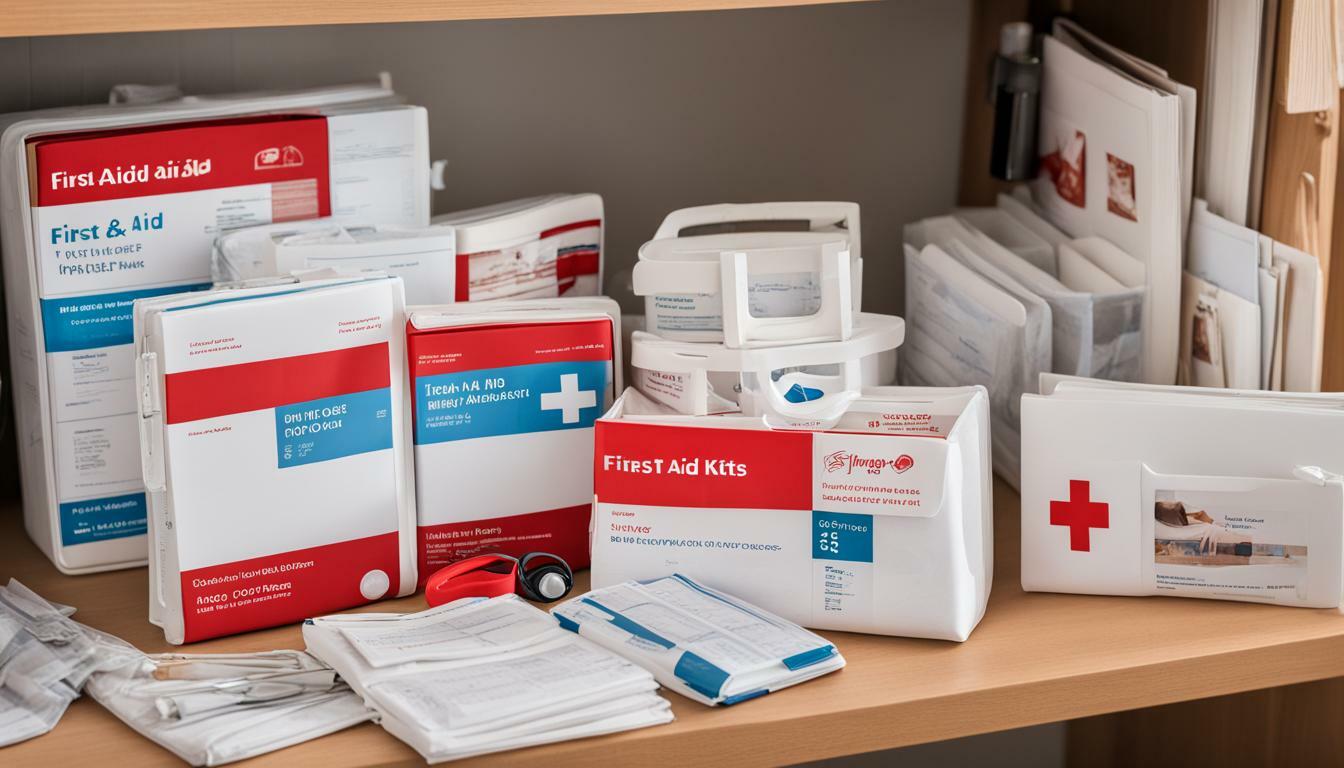
Creating an Emergency Action Plan
Now that you have your first aid kit ready, it’s essential to have an emergency action plan in place. An emergency action plan outlines what steps to take in case of a medical emergency, ensuring the safety of aging parents.
Emergency Preparedness
First, assess potential risks and hazards that may arise. Identify any medical conditions that may require immediate attention. For example, if your aging parent has a heart condition, it’s important to know the warning signs of a heart attack and what to do in case of one.
Senior Safety
Second, establish communication and emergency contacts. Make sure that all family members and caregivers have up-to-date contact information. Include emergency services for quick and easy access. Practicing the emergency action plan is crucial in ensuring its effectiveness during a crisis.
Medical Emergencies
| Medical Emergency | Action |
|---|---|
| Heart Attack | Call emergency services. If trained, initiate CPR. Keep them comfortable, warm and reassured. |
| Choking | Perform the Heimlich manoeuvre. If unsuccessful, call emergency services. |
| Stroke | Act fast. Call emergency services. Check for signs such as facial drooping, arm weakness and slurred speech. Note onset time if possible. |
Source: British Red Cross
Safety for Aging Parents
Finally, consider any additional safety measures that may be necessary for aging parents. For instance, ensuring their home environment is safe and free of hazards such as loose rugs, cluttered pathways, and poorly lit areas. These modifications may include installing grab bars in bathrooms or improving lighting in staircases.
Creating an emergency action plan may seem overwhelming at first, but being prepared is critical in an emergency. Remember to communicate the plan with all family members and caregivers and practice it regularly. With an effective emergency action plan in place, you can rest assured that you’re ready to handle any medical emergency that may arise.
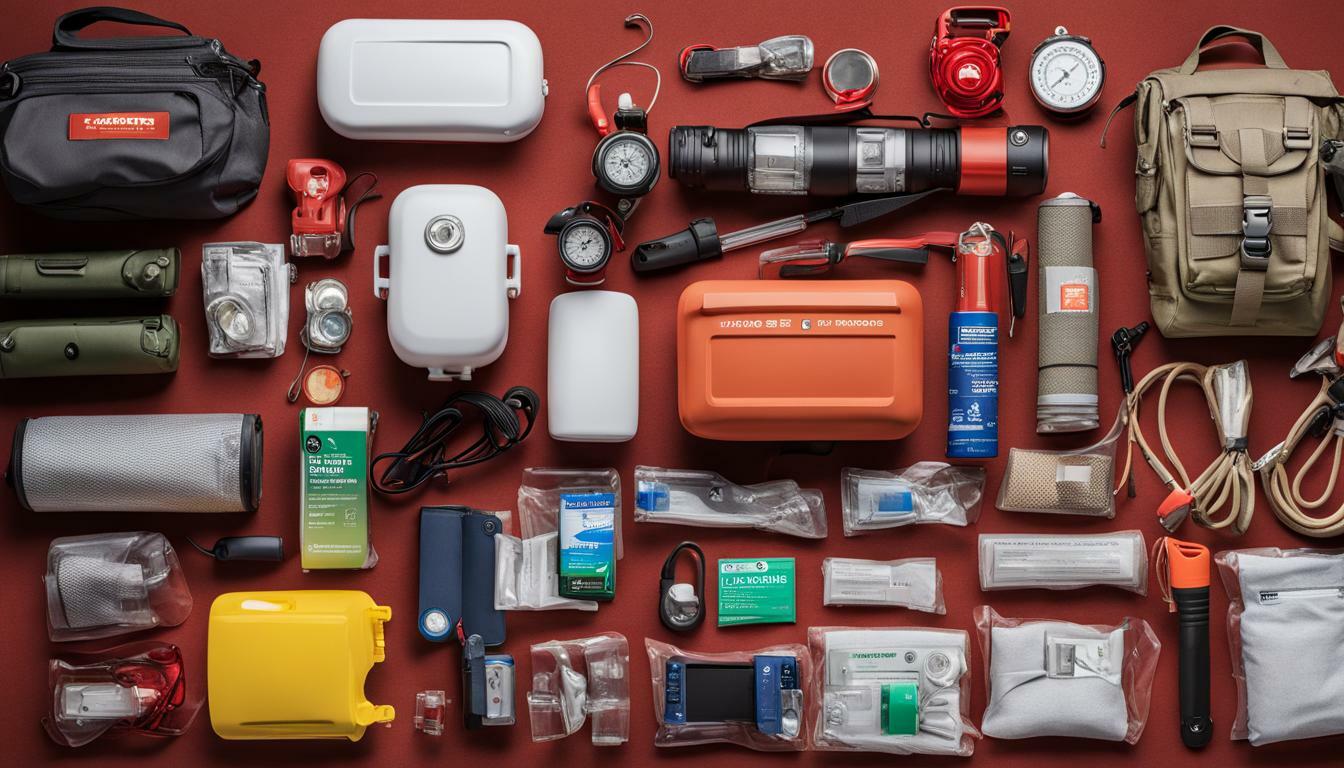
Additional Safety Measures for Aging Parents
Along with having a well-stocked first aid kit, there are additional safety measures that can be taken to ensure the well-being of aging parents. By implementing these measures, you can prevent accidents and promote a safer living environment.
Fall Prevention
Falls are a common occurrence in the elderly population and can result in serious injuries. To prevent falls, it’s important to make sure your loved one’s home is free of hazards. This can include installing grab bars in the bathroom, securing loose rugs and ensuring proper lighting throughout the house.
Medication Management
Managing medications can be a challenge for aging parents. To prevent accidental overdoses or missed doses, it’s important to keep a detailed list of medications and their dosages. You can also invest in pill dispensers with alarms to help remind your loved one when it’s time to take their medication.
Home Safety Modifications
There are several modifications that can be made to a home to ensure the safety of aging parents. These can include installing handrails on stairways, widening doorways to accommodate mobility aids and replacing traditional doorknobs with lever handles that are easier to operate.

By taking these additional safety measures, you can help prevent accidents and promote a safer living environment for your aging parents. Remember, safety is an ongoing process, so it’s important to regularly reassess the home environment and make necessary modifications.
Seeking Professional Advice and Support
When caring for aging parents, it’s important to seek professional advice and support. Healthcare professionals can provide valuable insights into the specific needs of your parents and help you determine the best course of action for ensuring their health and safety. They can also offer guidance on managing any medical conditions your parents may have and provide recommendations for the appropriate first aid supplies to keep on hand.
In addition to medical professionals, there are also caregiver resources available in the UK that can provide further support. These resources offer a range of services, including information and advice on caring for aging parents, guidance on navigating the healthcare system, and support groups for caregivers. By utilizing these resources, you can gain access to valuable information and support that can make caring for your aging parents much more manageable.
Overall, seeking professional advice and support can have a significant impact on the health and safety of your aging parents. Whether you’re looking for medical advice or caregiver resources, there are many options available in the UK that can provide the support you need to ensure the well-being of your loved ones.

Remember, taking care of aging parents is a team effort. Don’t hesitate to reach out for help and support when you need it. By working together, you can ensure that your parents receive the best possible care and enjoy a happy, healthy, and fulfilling life.
Promoting Peace of Mind for Ageing Parents and Their Families
Caring for ageing parents can be an emotional and challenging experience for families. However, investing in first aid kits for ageing parents can bring a sense of peace of mind to both parents and their families.
Knowing that the necessary first aid supplies are readily available in case of emergency can alleviate worry and stress. Additionally, having a well-stocked first aid kit can provide a sense of empowerment and control in unpredictable situations.
At the same time, it’s important to remember that first aid kits are just one aspect of overall elderly care. Good communication, empathy, and reassurance are equally vital in promoting the emotional well-being of ageing parents.
By prioritising their safety and well-being, investing in first aid kits, and providing emotional support, families can help their ageing parents thrive and age gracefully.

Making First Aid Kits a Priority: Taking Action Now
Investing in a first aid kit for your aging parents is not only a practical decision, it’s also a responsible one that shows you care about their safety and well-being. By taking action now, you can provide peace of mind for both your parents and your family.
With the unpredictable nature of medical emergencies, it’s important to be prepared. A first aid kit for aging parents can be the difference between life and death in emergency situations. By having the necessary supplies readily available, you can ensure their safety and increase their chances of recovery.
Furthermore, prioritizing the safety of your aging parents through a first aid kit demonstrates your commitment to elderly care. It shows that you understand the potential risks they face and are willing to take proactive steps to prevent and manage them.
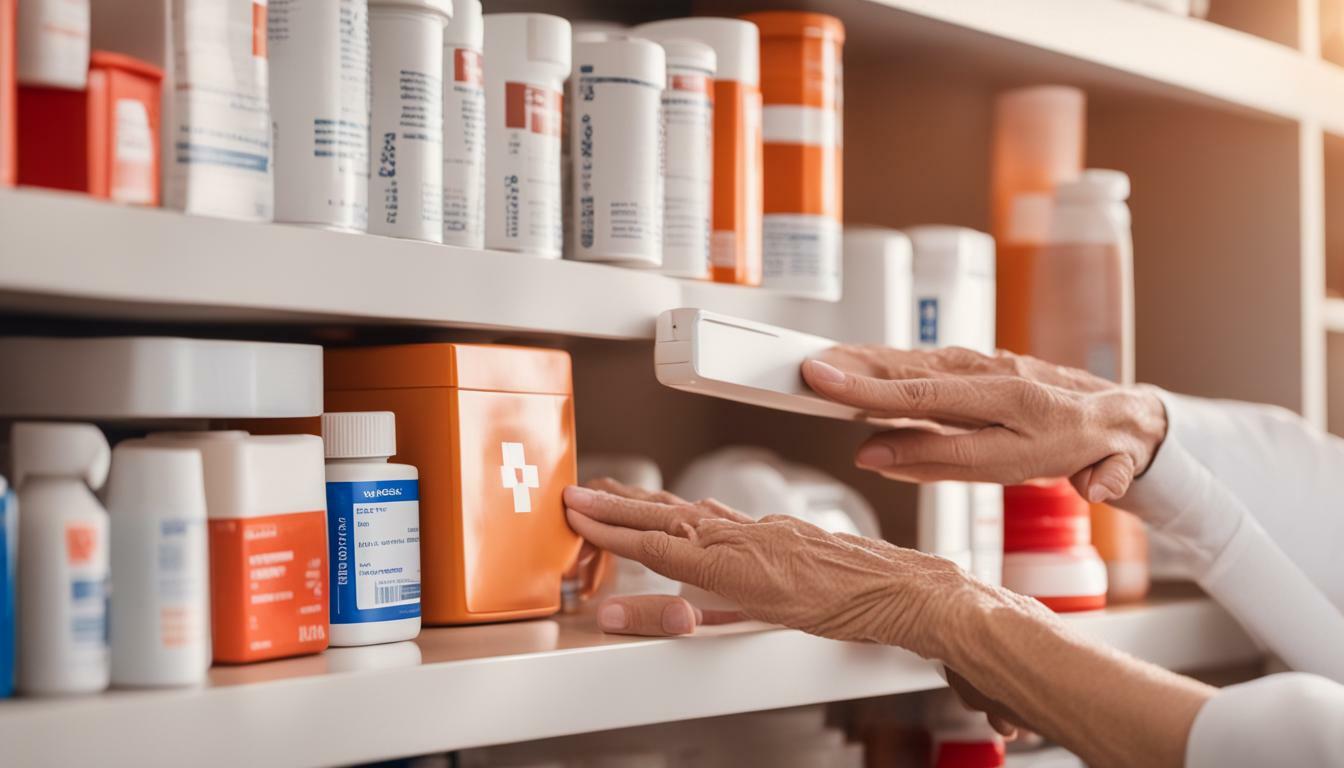
Don’t wait until it’s too late. Take action now to protect your aging parents and your family. By investing in a first aid kit, you can ensure the safety, health, and peace of mind for all.
Conclusion
Investing in a first aid kit for your aging parents is an essential step towards ensuring their safety and peace of mind. By understanding the importance of elderly care and emergency preparedness, assessing their specific needs, and choosing the right first aid kit, you can take proactive measures to prevent medical emergencies and respond effectively to any unexpected situations.
Organizing and maintaining the kit, educating aging parents and caregivers, creating an emergency action plan, and implementing additional safety measures can further enhance their well-being. It is crucial to seek professional advice and support and to promote open communication and empathy to ensure that your loved ones feel valued and cared for.
Now is the time to take action and make first aid kits a priority. By doing so, you can provide your aging parents with the safety and security they deserve and experience the peace of mind that comes with knowing that you have taken the necessary steps to protect their well-being.
